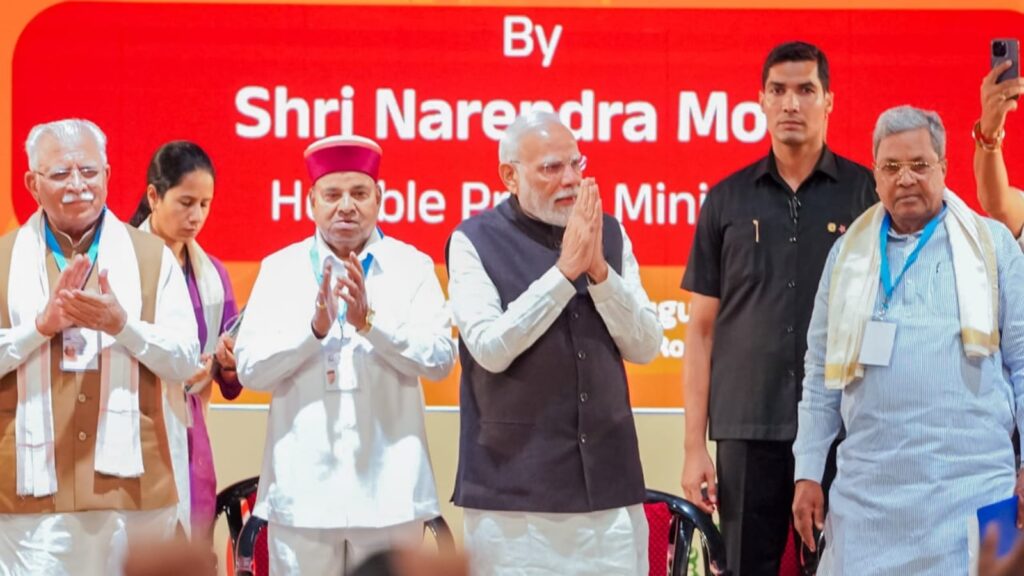“Indian tech companies have made a mark globally, developing software and products for the entire world. It is now time to prioritise India’s own needs more strongly and must accelerate the development of new products, especially as software and apps are now being used across every domain,” PM Modi said after inaugurating critical mobility infrastructure projects in Bengaluru.
On Sunday, Modi inaugurated the 19.16 km Yellow Line of Bengaluru metro worth around Rs 7,160 crore, thus expanding the city’s metro network to 96 km. He also laid the foundation stone of the Bengaluru Metro Phase-3 project worth over Rs 15,610 crore and flagged off three Vande Bharat Express trains at KSR railway station, Bengaluru. Vande Bharat trains were launched between Bengaluru and Belagavi, Nagpur and Pune, and Shri Mata Vaishno Devi Katra and Amritsar. Modi also undertook a metro ride on the newly inaugurated metro line from Ragigudda metro station to Electronic City station.
Addressing the gathering at the International Institute of Information Technology Bangalore, Modi stated that it is essential for India to reach new heights in emerging fields. Calling for focused efforts to lead in emerging fields, the prime minister stressed the need to strengthen Bengaluru and Karnataka’s presence in ‘Make in India’ and the manufacturing sector. He urged that India’s products must adhere to the ‘Zero Defect, Zero Effect’ standard, meaning they should be flawless in quality and have no negative impact on the environment.
Stressing India’s economic strides, PM Modi said, “India is currently the fastest-growing major economy in the world. In the past 11 years, India’s economy has risen from the 10th position to the top five globally, and is rapidly progressing toward becoming one of the top three economies.” He attributed this momentum to the spirit of ‘Reform, Perform and Transform,’ driven by clear intent and honest efforts.
Modi also highlighted that before 2014, India’s total exports had reached only $468 billion, whereas today, that figure has risen to $824 billion. He also remarked that earlier, India used to import mobile phones, but now, the country is among the top five exporters of mobile handsets. He noted that Bengaluru has played a significant role in this transformation and that India’s electronics exports have now increased to nearly $38 billion from $6 billion in 2014. He also highlighted that 11 years ago, India’s automobile exports stood at approximately $16 billion, and that figure has more than doubled, making India the fourth-largest automobile exporter globally.
Acknowledging the contribution of the youth of Bengaluru and Karnataka in Operation Sindoor, Modi highlighted the success of Indian forces in the operation, noting their capability to destroy terrorist hideouts deep across the border. He attributed the success of Operation Sindoor to the power of technology and the strength of ‘Make in India’ in the defence sector.


